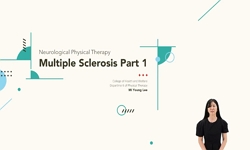Objective: Premorbid demographic backgrounds of injured individuals are likely to reflect more accurately the status of patients with traumatic brian injury (TBI) than clinical factors. However, the concrete study about the relationship between the de...
http://chineseinput.net/에서 pinyin(병음)방식으로 중국어를 변환할 수 있습니다.
변환된 중국어를 복사하여 사용하시면 됩니다.
- 中文 을 입력하시려면 zhongwen을 입력하시고 space를누르시면됩니다.
- 北京 을 입력하시려면 beijing을 입력하시고 space를 누르시면 됩니다.



The Effect of Premorbid Demographic Factors on the Recovery of Neurocognitive Function in Traumatic Brain Injury Patients
한글로보기https://www.riss.kr/link?id=A100666546
- 저자
- 발행기관
- 학술지명
- 권호사항
-
발행연도
2008
-
작성언어
English
- 주제어
-
등재정보
SCOPUS,SCIE,KCI등재
-
자료형태
학술저널
- 발행기관 URL
-
수록면
295-302(8쪽)
- 제공처
-
0
상세조회 -
0
다운로드
부가정보
다국어 초록 (Multilingual Abstract)
Objective: Premorbid demographic backgrounds of injured individuals are likely to reflect more accurately the status of patients with traumatic brian injury (TBI) than clinical factors. However, the concrete study about the relationship between the demographic factors and neurocognitive function in TBI patients has not been reported. The object of this study was to evaluate the effect of premorbid demographic factors on the recovery of neurocognitive function following TBI. Methods: From July 1998 to February 2007, 293 patients (male: 228, female: 65) with a history of head injury, who had recovered from the acute phase, were selected from our hospital to include in this study. We analyzed the effect of premorbid demographic factors including age, sex, educational level and occupation on the recovery of neurocognitive function in each TBI subgroup as defined by Glasgow Coma Scale (GCS) score. Intelligence and memory are components of neurocognitive function, and the Korean Wechsler Intelligence Scale (K-WAIS) and the Korean memory assessment scale (K-MAS) were used in this study. The results were considered significant at p<0.05. Results: The higher level of education was a good prognostic factor for intelligence regardless of GCS score and younger age group showed a better result for memory with an exception of severe TBI group. In the severe TBI group, the meaningful effect of demographic factors was not noted by the cause of influence of severe brain injury. Conclusion: The demographic factors used in this study may be helpful for predicting the precise prognosis and developing an appropriate rehabilitation program for TBI patients.
동일학술지(권/호) 다른 논문
-
- The Korean Neurosurgical Society
- Koh, Jun-Seok
- 2008
- SCOPUS,SCIE,KCI등재
-
Disseminated Intravascular Coagulation in a Patient Undergoing Removal of Metastatic Brain Tumor
- The Korean Neurosurgical Society
- Eom, Ki-Seong
- 2008
- SCOPUS,SCIE,KCI등재
-
The Jugular Foramen Schwannomas : Review of the Large Surgical Series
- The Korean Neurosurgical Society
- Bakar, Bulent
- 2008
- SCOPUS,SCIE,KCI등재
-
Spinal Intradural Extramedullary Mature Cystic Teratoma in an Adult
- The Korean Neurosurgical Society
- Sung, Kyung-Soo
- 2008
- SCOPUS,SCIE,KCI등재




 ScienceON
ScienceON


